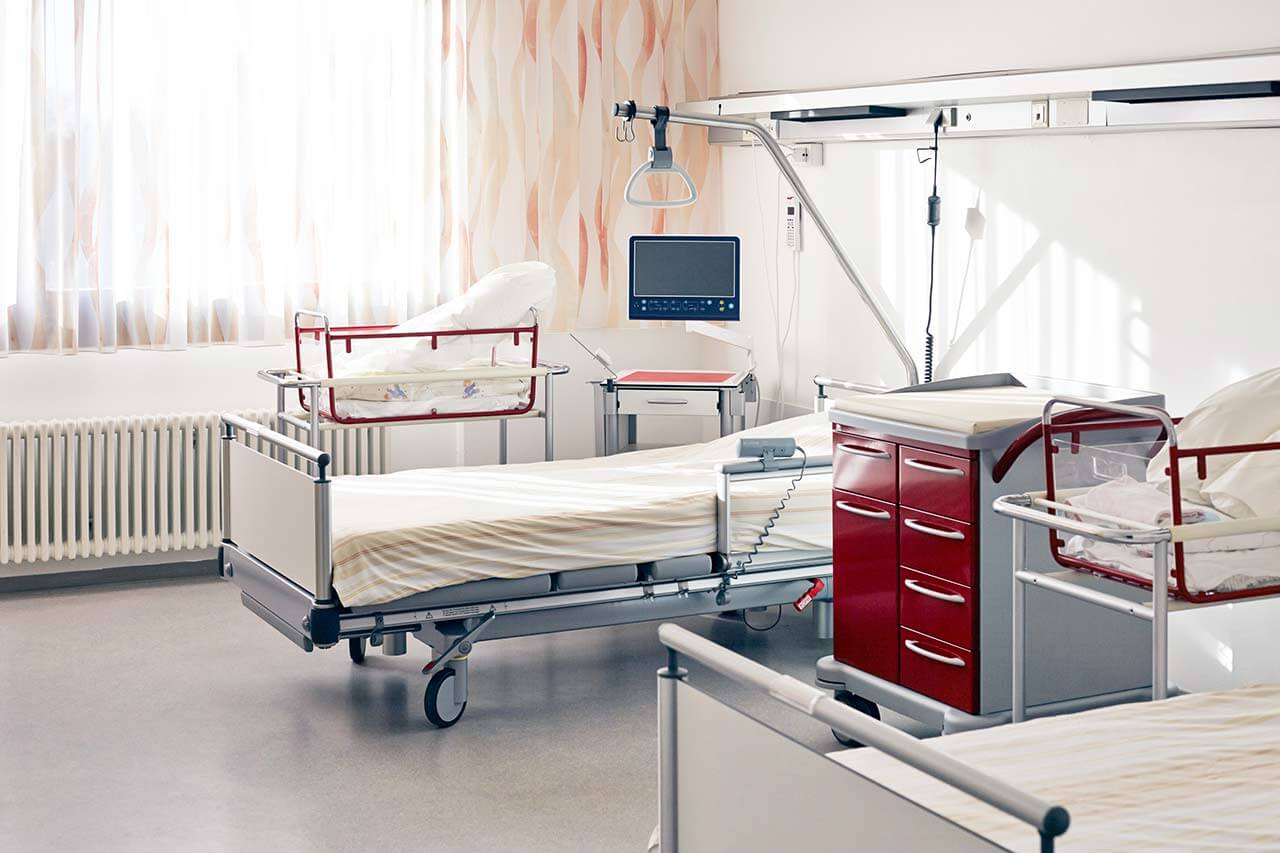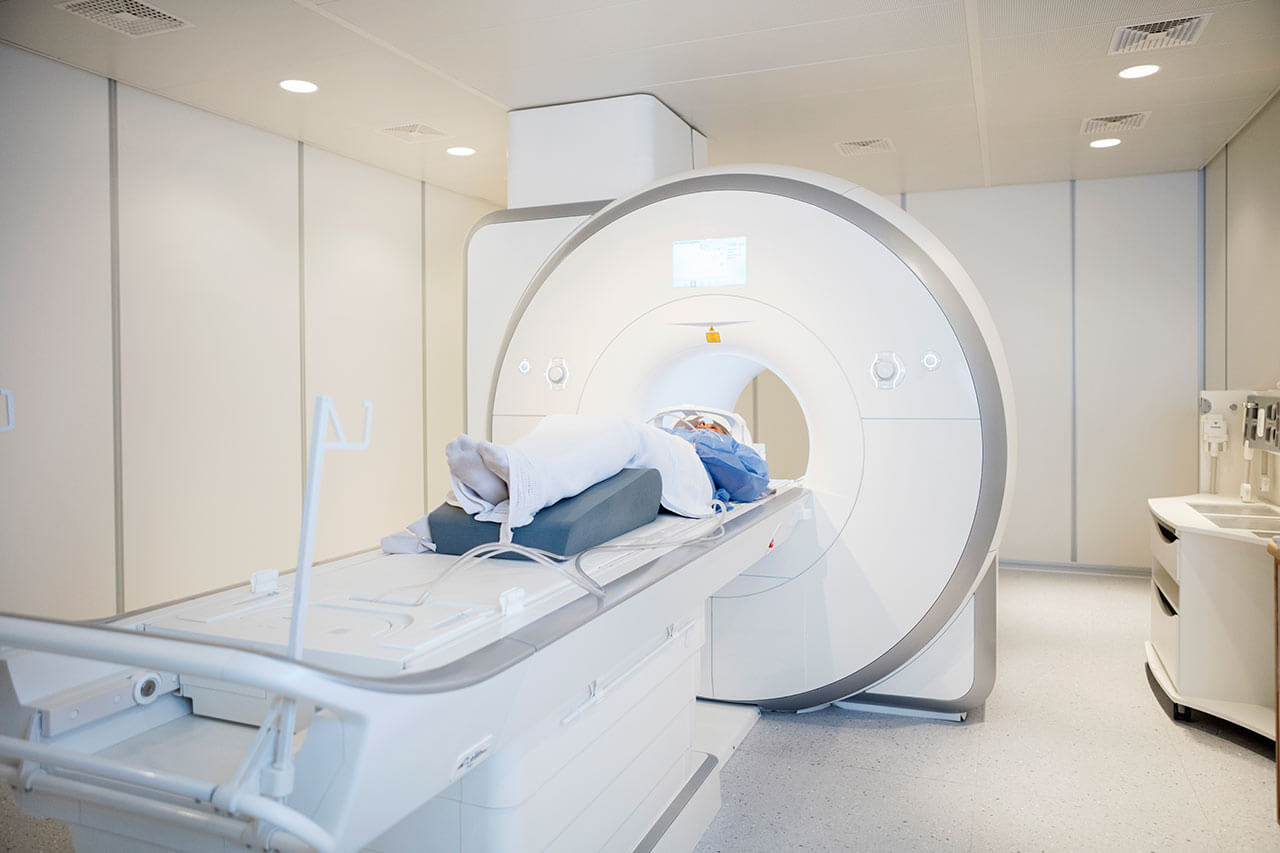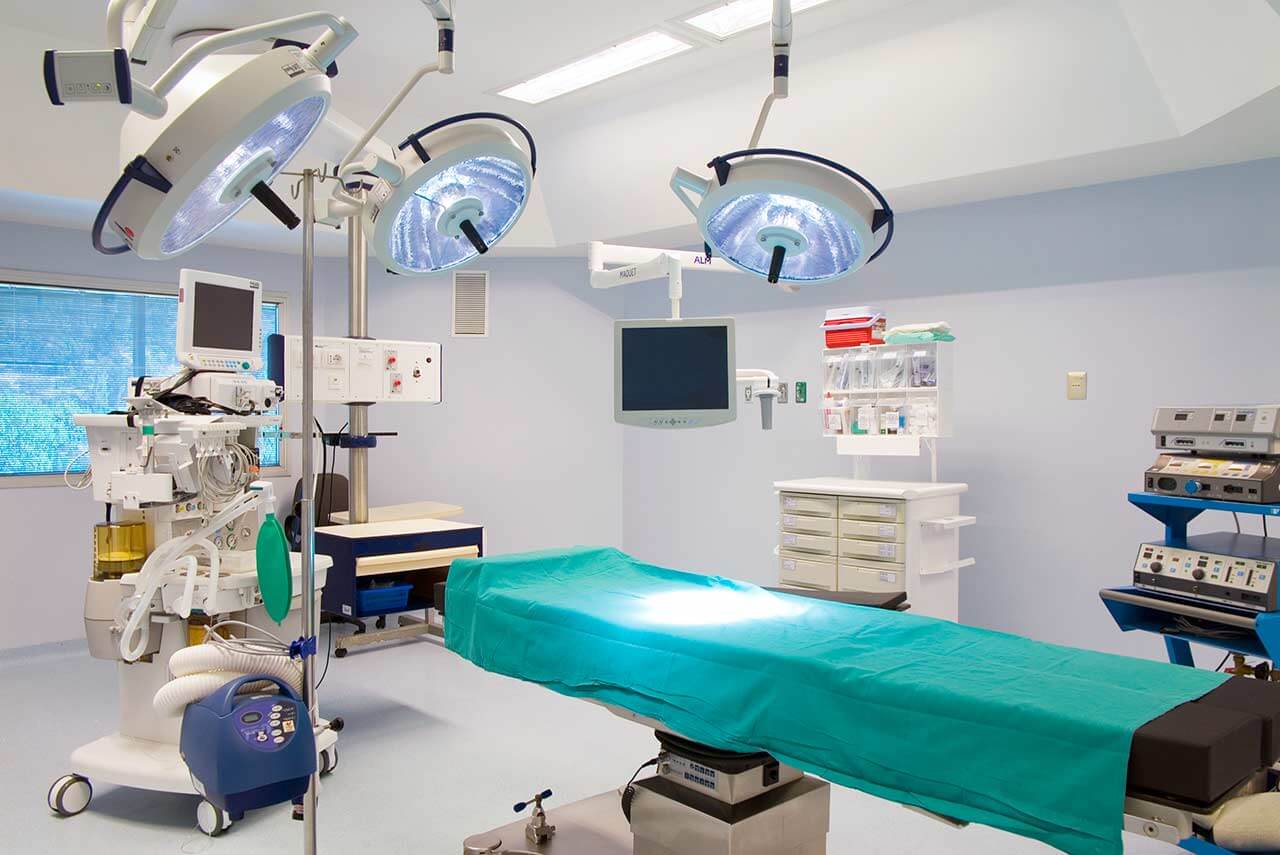
About the Department of Interventional Radiology, Neuroradiology and Nuclear Medicine at Hospital Cologne-Holweide
The Department of Interventional Radiology, Neuroradiology and Nuclear Medicine at the Hospital Cologne-Holweide provides the full range of services in the areas of its specialization. The department's team of physicians performs many image-guided diagnostic procedures and radioisotope examinations using state-of-the-art equipment. Effective minimally traumatic image-guided interventional procedures are also available here for the treatment of stroke, tumors, vascular stenosis, vascular obstructions, abscesses, etc. The department has advanced medical equipment, including a high-performance SOMATOM Definition Flash CT scanner, several 1.5 Tesla magnetic resonance imaging devices, and a dual-plane angiography machine. The medical facility has a picture archiving and communication system (PACS), which ensures fast processing and transmission of diagnostic results to different departments at the hospital. Doctors cooperate closely with specialists from other departments. Most diagnostic examinations and therapeutic procedures are performed on an outpatient basis. The doctors at the medical facility pay attention to comprehensive patient counseling, striving to provide complete information about the upcoming diagnostic procedures or treatment. The Head Physician of the department is Prof. Dr. med. Axel Gossmann.
The department's interventional radiologists specialize in performing image-guided invasive examinations and therapeutic procedures. Of particular interest in the field of diagnostics is a biopsy, which is biological material sampling for follow-up cytologic and histologic examinations. Biopsy procedures are performed under ultrasound or CT guidance. Doctors in this area also perform many effective therapeutic procedures under CT or angiography guidance. For example, the department often performs chemoembolization. This is a local treatment for malignant tumors that involves occluding the blood vessels that supply the neoplasm with emboli (microspheres) that contain chemotherapeutic agents. Procedures like balloon dilation and stent implantation are also performed under imaging guidance here. As a rule, these procedures are indicated in cases of vascular stenosis and obstruction of various localizations.
An integral part of the department's clinical practice is neuroradiology. Doctors in this specialization are responsible for image-guided diagnostics and CT- and MRI-guided endovascular treatment of brain and spinal cord diseases. A very demanded treatment method in the field of neuroradiology is aspiration thrombectomy. This procedure involves puncturing the blood vessel with a needle that is guided to the pathological focus through a specialized catheter, allowing for direct removal of the thrombus and thereby normalizing blood supply to the brain. The department's neuroradiologists also specialize in coiling for brain aneurysms and embolization for angiomas and brain and spinal malignancies.
A team of experts in nuclear medicine offers a broad range of radioisotope diagnostics. State-of-the-art equipment is available in the department for scintigraphy of the myocardium, kidneys, bones, lungs, brain, thyroid gland, and other organs. When conducting scintigraphy, doctors administer pharmaceuticals with radioactive markers, which accumulate in tissues or organs and emit specific radiation. This radiation is recorded by external detectors on the gamma camera, resulting in an image formation. Scintigraphy is a painless and completely safe diagnostic method that, in many cases, provides doctors with unique clinical data.
The department's clinical focuses include:
- Interventional radiology
- Image-guided interventional therapeutic procedures
- Balloon dilatation followed by stent implantation for vascular stenosis and obstruction
- Chemoembolization for malignant tumors
- Radiofrequency ablation for malignant tumors
- Puncture for abscesses and other pathological fluid accumulations
- Image-guided interventional therapeutic procedures
- Interventional neuroradiology
- Image-guided interventional therapeutic procedures
- Lysis therapy and aspiration thrombectomy for stroke
- Coiling for brain aneurysms
- Embolization for angiomas
- Embolization for brain and spinal tumors
- Image-guided interventional therapeutic procedures
- Nuclear medicine
- Radioisotope diagnostics
- Myocardial scintigraphy
- Skeletal scintigraphy
- Bone marrow scintigraphy
- Kidney scintigraphy
- Lung ventilation perfusion scintigraphy
- Brain scintigraphy
- Thyroid scintigraphy
- Parathyroid scintigraphy
- Adrenal scintigraphy
- Radioisotope diagnostics
- Other medical services
Curriculum vitae
Since 2008, Prof. Dr. med. Axel Gossmann has been the Head Physician of the Department of Interventional Radiology, Neuroradiology and Nuclear Medicine at the Hospital Cologne-Holweide. Since May 2013, he has held the position of Medical Director at the Hospital Cologne-Merheim. In September 2014, the specialist became the Head Physician of the Department of Diagnostic and Interventional Radiology at the University of Witten/Herdecke. Since April 2022, Prof. Axel Gossmann has also been Medical Director of the Cologne Hospital Network (Kliniken der Stadt Köln).
Photo of the doctor: (c) Krankenhaus Köln-Holweide





